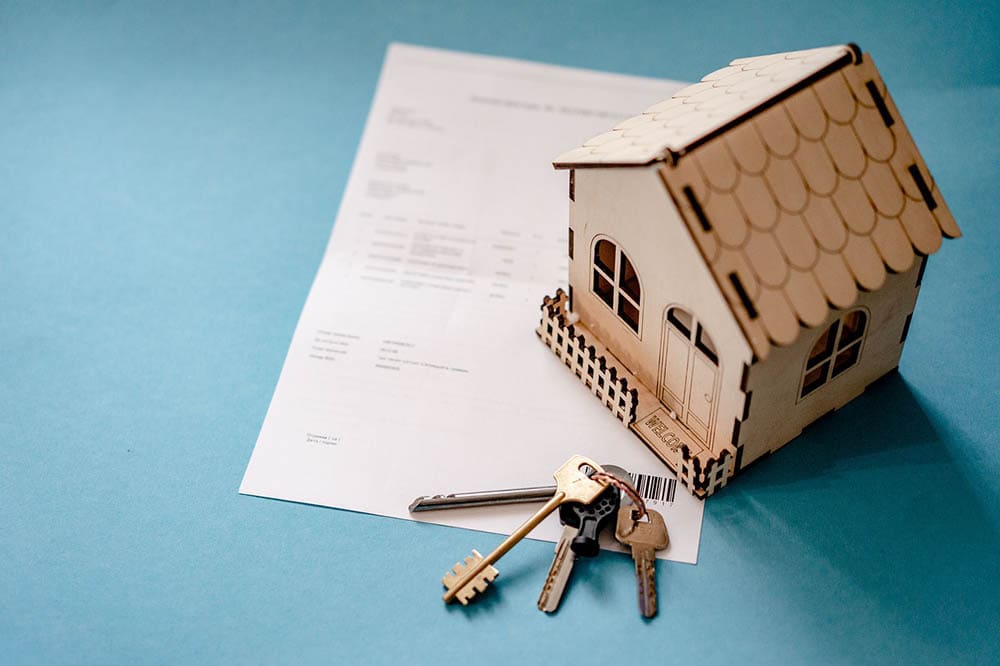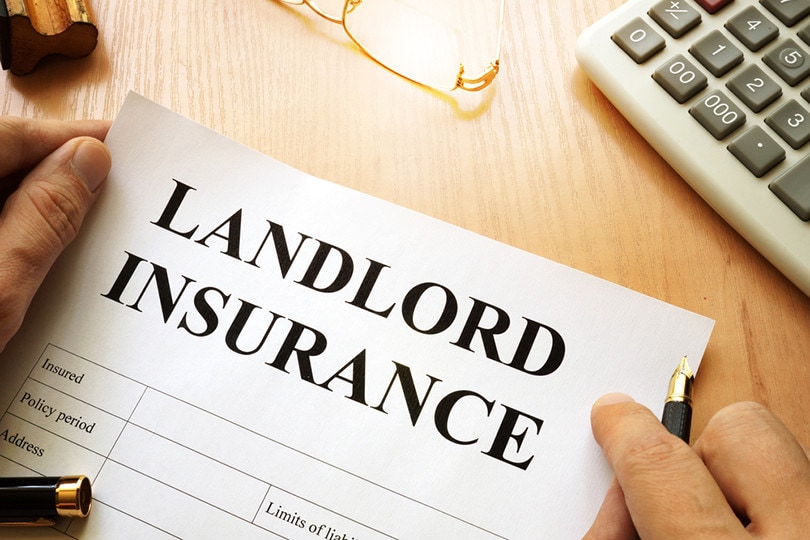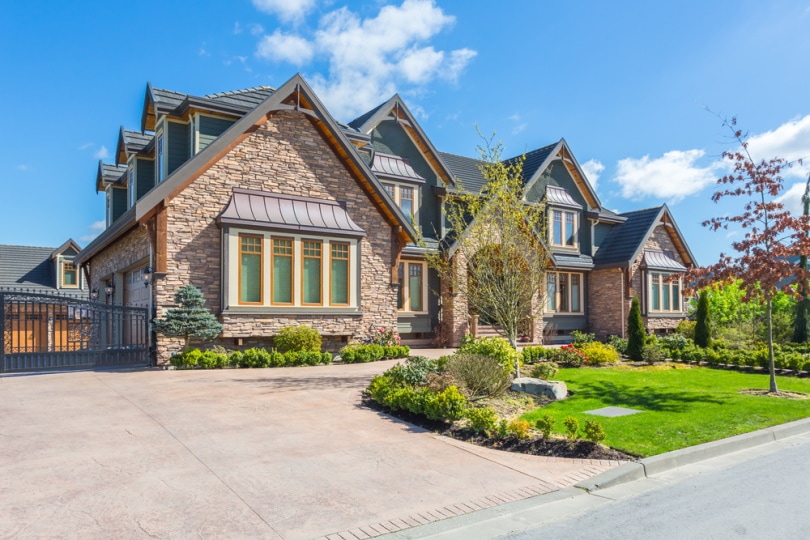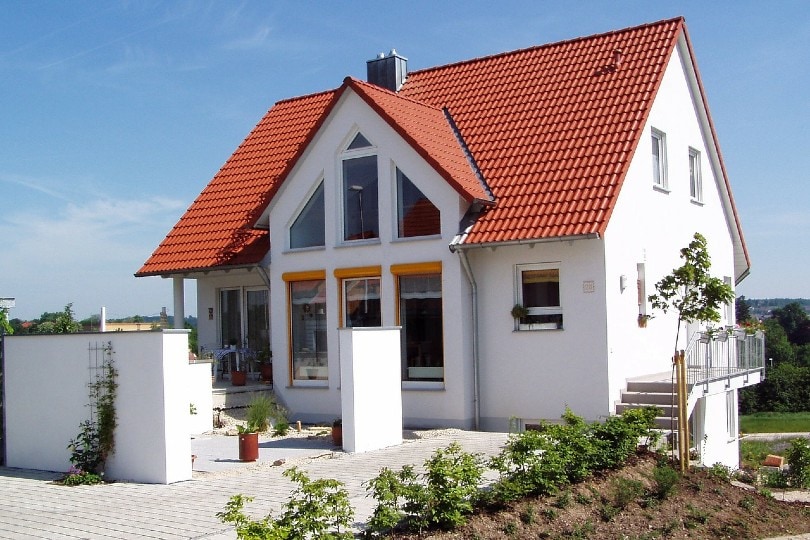Landlord Insurance vs Home Insurance: Pros, Cons & Differences
-
Pete Ortiz
- Last updated:

Property owners are always looking for ways to protect their valuable possessions. It may be a rental property or a home. Landlords have rented out property while homeowners have personal residences. Insuring your property is crucial whether you’re a landlord or a homeowner.
Landlords have insurance coverage needs specific to their industry. The same applies to homeowners. But how do you tell the difference between landlord and home insurance?
Landlord insurance is a type of property insurance that covers the rental property you own and the contents within it. On the other hand, a home insurance policy is designed to protect the structure and contents of your residence.
The insurance policy you choose depends on what you (individual homeowner or landlord) want to protect. Here, we’ll look at the details and differences between these two insurance policies. So, keep reading to learn more!
Overview of Landlord Insurance
Like homeowners, landlords need insurance coverage for the property they’re renting. Landlord insurance can be used by an individual landlord or a company that owns many rental properties. Landlord insurance policies can be customized to meet the needs of individual landlords.
Let’s look at what landlord insurance is and how it works.

What Is Landlord Insurance?
Landlord insurance is a form of property insurance that protects landlords against losses resulting from damage to rental property and loss of rent. The policy may also include liability protection for injuries or damages caused.
Sometimes, landlord insurance is also called buy-to-let insurance. As a landlord, your primary concern is maintaining your property in excellent condition. You should also ensure it remains safe for your tenants. The cost of landlord insurance varies depending on how much coverage you need and where your property is located.
For example, your rental building may be in an area prone to flooding or earthquakes. Also, it may have suffered significant damage in the past. So, it will be more expensive than an apartment complex located in a less risky area.
How Does Landlord Insurance Work?
Landlords are responsible for the safety of their property, not their tenants/ renters. It means that if there is a fire or other disaster, they will cover the damages. This is where landlord insurance comes in handy.
It can help protect you from these unforeseen costs. It covers repairs to your rental properties and pays for any lawsuits that may arise from tenant injuries or damage caused by your negligence. So, if any of these situations happen in your rental property, you can be compensated.

When Do You Choose Landlord Insurance?
Landlords have a few options when it comes to protecting their rental properties. One can choose to buy a landlord insurance policy or not. It all depends on the property type and whether the rental market is stable in the area.
Landlord insurance is a necessity for any rental property owner, whether you are renting out a single-family home or a large apartment complex. It’s the best way to protect your rental property should anything happen.
- Covers rent nonpayment or loss of rent
- Covers break-ins and theft
- Assists you with legal expenses
- Safeguards your property against damage
- Gives you peace of mind knowing your rental property is insured in case anything happens
- Covers in case your rental property becomes uninhabitable
- It can be somewhat costly
- Some clauses in landlord insurance can be a bit confusing
- Filing a claim with landlord insurance can be a bit of a challenge
Overview of Home Insurance
Home insurance is the most basic type of property insurance and one of the most commonly purchased insurance types. It’s an essential part of your financial planning because it can help you protect the value of your home and possessions. If you have a mortgage on your home, you will likely be required to have homeowners’ insurance coverage.
Here is a further definition of home insurance and how it works.

What Is Home Insurance (Homeowners’ Insurance)?
Home insurance protects your residence and its contents, such as personal belongings and structural components, against perils such as fire, theft, vandalism, and natural disasters. It covers the cost of rebuilding your house and the repair cost if your home is damaged by fire, flood, or storm. You can also claim additional living expenses if you cannot live in your home while repairs are underway.
How Does Home Insurance Work?
Home insurance protects your property and possessions against insured risks. Many home insurance policies will also offer protection in case of legal liability. The process for claiming home insurance varies between insurers.
All you need to do is contact the insurance firm’s customer services department after a loss. This way, they can start processing it right away. You’ll need to show your home insurance documents as proof that you’re entitled to a claim for them to process it fast.

When Do You Choose Home Insurance?
Home is where most of us spend most of our time. It’s also where we store our belongings and keep our family safe. If something happens at home, you may not be able to replace any items damaged in an accident or robbery if you’re uninsured.
This is where home insurance comes into play. Every homeowner must have home insurance. With this, you’re insured should anything happen to your personal property.
- Covers considerable damage
- Protects you from lawsuits
- The deductible is low compared to the cost of repair
- Safeguards your detached structures
- It covers natural calamities, such as floods and earthquakes
- Expensive
- Doesn’t cover all damages to your home
- There are a couple of hidden costs of home insurance
Different Types of Landlord Insurance
There are many types of landlord insurance available. Some policies are better suited to one landlord and not the other. If you don’t have suitable insurance coverage, you could be in for some big inconveniences. So, check out the various types before deciding which landlord insurance policy is best for you.
- Landlord Liability Insurance – Landlord liability insurance protects the landlord from claims made by tenants or visitors on the property. Also, it covers injuries that may happen to tenants on the property. These include slips and falls in public areas or damage to personal property. The policy will also cover legal fees if you want to defend yourself against a claim.
- Loss of Rent Insurance – This policy covers the loss of income if your rental property becomes unlivable for some time. It may be due to damage or destruction by covered perils.
- Accidental Damage Insurance – It covers accidental damage caused by tenants or their guests. For example, a tenant may break a window in your property accidentally, and it’s not covered. Accidental damage insurance would cover the cost of replacement.
- Landlord Buildings Insurance – This one covers the rental building itself, which is the damage caused by fire, flood, theft, or vandalism. It also protects the building structure, including floors and walls. But, it doesn’t cover the contents.
- Tenant Default Insurance – This policy protects landlords in case their tenants don’t pay rent for two consecutive months. The policy will cover the cost of an unpaid rent check plus additional expenses such as legal fees and court costs. Tenant default insurance is available monthly or annually. It can also be added to a standard landlord insurance plan at any time.
- Landlord Contents Insurance – It’s a form of commercial insurance designed for landlords, which covers the cost of replacing damaged or stolen contents in a rented property. However, it doesn’t cover normal wear and tear during a tenancy. Also, it doesn’t cover a tenant’s possessions. Encourage your tenants to ensure they have their cover.
- Unoccupied Property Insurance – This insurance covers your property when it’s unoccupied. This includes coverage for vandalism, theft, and damage caused by covered perils. Carry out regular checks if you want to remain covered by this insurance.
- Landlord Home Emergency Insurance – It covers the rental building’s drainage, power, heating, or plumbing. Also, it can cover alternative accommodation for some time if any of these issues makes the rental building uninhabitable.
- Alternative Accommodation Insurance – Some landlord policies include alternative accommodation insurance (AAI). It covers alternative accommodation costs if your tenants have to move out of the rental building for some time after an accident or natural disasters such as fire or flood.

Different Types of Home Insurance
Home insurance covers liability for any accidents that occur on personal property. There are different home insurance policies, each with its unique features. The most common types of home insurance include:
1. Comprehensive Home Insurance
It’s an all-risk insurance policy- the most inclusive insurance. It covers any loss or damage to your property from any cause, except for those specifically excluded in your policy. Many companies offer a comprehensive insurance policy.
The cost of comprehensive home insurance varies depending on the amount and type of coverage you choose. This all-risk policy will cover accidental loss due to causes such as fire, water leaks, natural disasters, and theft, including vandalism.

2. No Frills Home Insurance Coverage
If you’re looking for an affordable home insurance policy, a no-frills home insurance policy may be what you need. These policies are not as comprehensive as other types of home insurance coverage, but they can provide some coverage for several situations and events.
No-frills home insurance policies may protect properties that don’t meet ordinary insurance standards. If you want to qualify for better home insurance coverage, rectify these physical issues in your home that make it ineligible for better home insurance.
3. Basic or Named Perils
Similar to no-frills coverage, this home insurance coverage is inexpensive. Under this policy, your insurer will only pay for damage caused by specific events listed in your policy, such as fire or wind.
But, these policies do not cover the cost of repairing or replacing items damaged by these events. Instead, the homeowner is responsible for paying out of pocket to have repairs made before filing a claim with their insurer.

4. Broad Home Insurance Policy
If the comprehensive home insurance policy is not within your budget, you can opt for a mid-priced policy—a broad home insurance policy. It covers big items such as a building and other perils named in the insurance policy.
5. Personal Liability Insurance Coverage
This coverage protects you from lawsuits related to personal injury or property damage caused by you or your family members. It protects you if someone sues you after an accident occurs on your property even if they’re responsible for causing it! It also covers health care costs for your guests who are injured unintentionally at your home.
Some states require you to have this coverage through their homeowner’s insurance policies. In others, it’s optional but highly recommended if you conduct any business out of your home like an office or workshop.

Similarities Between Landlord Insurance and Home Insurance
Before we look at the differences between landlord and home insurance, it’s crucial to discuss the two primary similarities between them.
- Medical Payments and Personal Liability Coverage – Both landlord insurance and home insurance policies provide coverage for medical payments and personal liability. Medical payments coverage is available to help pay for the medical expenses incurred by anyone injured on your property, including tenants and their guests. Personal liability coverage protects you from lawsuits resulting from accidents occurring on your rental or personal property.
- Cover for Home Structures and Detached Structures – A landlord policy will cover both the structure of your home and any detached structures on your rental property, such as garages or sheds. Home insurance also covers home structures and detached structures. A detached structure is a building that is not attached to another building. It can be an apartment building, a single-family home, or even a barn or garage. In most cases, detached structures are insured under the same policy as your home.
What Are the Differences Between Landlord Insurance and Home Insurance?
Landlord and home insurance policies are similar in some ways, but there are several crucial differences. Understand these before deciding on what type of insurance coverage you need.
- Landlord insurance covers rental property, while homeowners’ insurance covers your primary dwelling. – Landlord insurance policy covers rental properties, including apartments, houses, or other dwellings. It protects a landlord’s rental property from covered perils. You don’t have to be a resident at your rental property to get landlord insurance. A landlord may also own several rental properties. Each is covered by a separate landlord insurance policy. On the other hand, homeowners’ insurance includes the structure of your home—its walls, roof, and foundation. It also covers all contents in a personal residence.
- Homeowners’ insurance policy has personal property coverage, while landlord insurance coverage doesn’t. A homeowner’s insurance policy includes personal property coverage, protecting your belongings if they get damaged or stolen from your home. But a landlord insurance policy does not have this type of coverage. It means that if any of your tenants’ belongings get damaged or stolen from their apartment unit, you will not file a claim for reimbursement.
- Homeowners’ insurance comprises loss-of-use coverage, while landlords can choose loss-of-rent coverage. Homeowners’ insurance policies offer several types of coverage. One of these is called “loss-of-use coverage.” It pays for the cost of renting temporary housing while your home is being repaired or rebuilt after a covered loss. Loss-of-rent coverage may be available through some landlords’ insurance policies. This coverage pays landlords who have suffered a covered loss and can no longer rent their property out due to the need for repairs or replacement of damaged property.

Landlord Insurance vs Home Insurance: Which One Is Right for You?
The world of insurance policies can be confusing, especially if you’ve never had to buy them before. There are many insurance policies, and they all offer different levels of coverage.
Landlord insurance is ideal if you want to rent out your property for a long time and you’re not residing there. On the other hand, if you have tenants living on your property while you’re also occupying it, homeowners and landlord insurance will do.
But if it’s solely personal property, you can purchase home insurance only. The insurance policy you choose depends on your situation and preference.
Conclusion
Whether to protect your investment or secure those you hold dear, it’s crucial to insure your properties. Home insurance often differs from landlord insurance. But the core of both policies is primarily the same.
Both insurance policies protect your home and possessions against certain catastrophes. The two have several notable differences as we’ve discussed above. Depending on your needs, the right insurance policy can be a critical aspect in rental or personal property.
It’s crucial to understand what landlord and home insurance are and why they may be necessary. This way, you can figure out the best course of action.
- What is Landlord Insurance?
- What is Home Insurance?
- How Does Landlord Insurance Work?
- Advantages and Disadvantages of Landlord Insurance
- How Does Home Insurance Work?
- Advantages and Disadvantages of Home Insurance
- Different Types of Landlord Insurance
- Different Types of Home Insurance
- What are the Differences between Landlord Insurance and Home Insurance?
- Landlord Insurance vs. Home Insurance: Which one is Right for you?
- INSURANCE INFORMATION INSTITUTE
- SIMPLY BUSINESS
- TEXAS DEPARTMENT OF INSURANCE
Featured Image Credit: VisionPics, Pixabay
Contents


